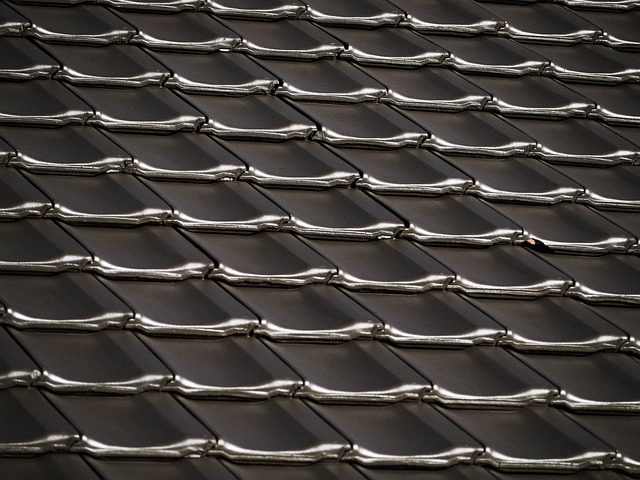Water-efficient and eco-friendly roofing designs, incorporating green materials like solar panels and recycled options, offer a multi-faceted approach to sustainable living. They slash bills, reduce environmental impact by preserving water resources, and lower carbon footprints. These innovations enhance insulation, improve air quality, provide habitats for urban wildlife, and potentially increase property value. Adopting these designs is a strategic move towards eco-consciousness, aligning with broader sustainability goals and contributing to a greener future.
“Unleash the power of eco-friendly living with innovative water-efficient roof designs. This comprehensive guide explores how sustainable roofing practices can revolutionize your home while safeguarding our planet. From reducing water consumption and lowering energy bills to improving insulation and air quality, these roofs are more than just green; they’re game-changers.
Dive into the world of green roofing materials, discover active solar systems, and learn about passive water harvesting techniques. We’ll uncover successful implementations across various climates, providing a wealth of insights for homeowners, architects, and builders alike. Embrace a brighter future with eco-conscious roofing solutions.”
- The Benefits of Water-Efficient Roof Designs for Eco-Friendly Living
- – Reduced water consumption and its environmental impact
- – Lowering energy bills through efficient cooling and heating
- – Improved building insulation and air quality
The Benefits of Water-Efficient Roof Designs for Eco-Friendly Living
Water-efficient roof designs offer a plethora of benefits for those embracing eco-friendly living. By incorporating such innovations as green roofing materials, solar panels, and recycled roofing options, homeowners can significantly reduce their water consumption and associated energy costs. These sustainable roofing solutions not only minimize the strain on local water resources but also contribute to overall environmental preservation.
Moreover, eco-conscious roofing practices enhance a building’s insulation, reducing heating and cooling needs, and thus lowering carbon footprints. The use of environmentally friendly roofing materials can also improve indoor air quality and provide habitats for urban wildlife. In essence, adopting water-efficient roof designs is a multifaceted approach to fostering a greener, more sustainable lifestyle while potentially adding value to one’s property.
– Reduced water consumption and its environmental impact
Adopting water-efficient roof designs is a powerful step towards eco-friendly living. Traditional roofing options often contribute to significant water waste, but modern innovations in sustainable roofing aim to change that. By incorporating green roofing materials and energy-efficient technologies, such as solar roofing, these designs minimize water consumption without compromising performance. The environmental impact of reduced water usage is profound; it conserves this precious resource for future generations while easing the strain on local water supplies.
Moreover, eco-conscious roofing solutions often go hand in hand with other sustainable practices, like using recycled roofing materials. This holistic approach not only lessens the carbon footprint associated with new constructions but also promotes a circular economy where resources are reused and repurposed. Ultimately, embracing water-efficient roof designs is a proactive step towards creating a greener and more resilient living environment.
– Lowering energy bills through efficient cooling and heating
Adopting water-efficient roof designs is a strategic move toward eco-friendly living that offers significant benefits beyond environmental preservation. These innovative solutions play a pivotal role in lowering energy bills by efficiently managing cooling and heating processes. By incorporating green roofing materials like recycled content and solar panels, homeowners can harness nature’s power to maintain optimal indoor temperatures. This reduces the reliance on conventional heating and cooling systems, resulting in substantial savings on utility expenses.
Sustainable roofing options not only contribute to a greener planet but also provide practical solutions for managing energy consumption. Energy-efficient roofs, crafted from environmentally friendly materials, help regulate indoor climates, minimizing the need for excessive energy input. This is particularly beneficial in regions with extreme weather conditions, where traditional roofing might demand more energy to maintain comfort levels. Thus, opting for eco-conscious roofing isn’t just a choice; it’s a proactive step toward a more sustainable and economically viable future.
– Improved building insulation and air quality
Eco-friendly roofing is more than just a trend; it’s a crucial step towards sustainable living and reducing our environmental impact. By focusing on improved building insulation, we can significantly enhance air quality while minimizing energy loss. Well-insulated roofs act as a barrier against extreme temperatures, keeping homes cooler in summer and warmer in winter, thereby decreasing the reliance on heating and cooling systems. This not only reduces carbon emissions but also lowers utility costs for homeowners.
One of the key advantages of green roofing materials is their ability to incorporate water-efficient features. Solar roofing, for instance, can capture solar energy to heat water or power electrical systems, lessening the burden on conventional energy sources. Additionally, recycled roofing materials and sustainable roofing solutions contribute to a circular economy by reducing waste and promoting reuse. These innovations not only benefit the environment but also create healthier living spaces by improving ventilation and air quality within buildings.
Water-efficient roof designs offer a compelling blend of environmental stewardship and economic benefits. By adopting eco-friendly roofing practices, such as incorporating green roofing materials or solar panels, homeowners can significantly reduce their water consumption, lower energy bills through enhanced insulation and efficient cooling/heating, and contribute to a more sustainable future. These solutions not only promote environmentally friendly roofing but also provide practical, long-term benefits for any eco-conscious individual.
